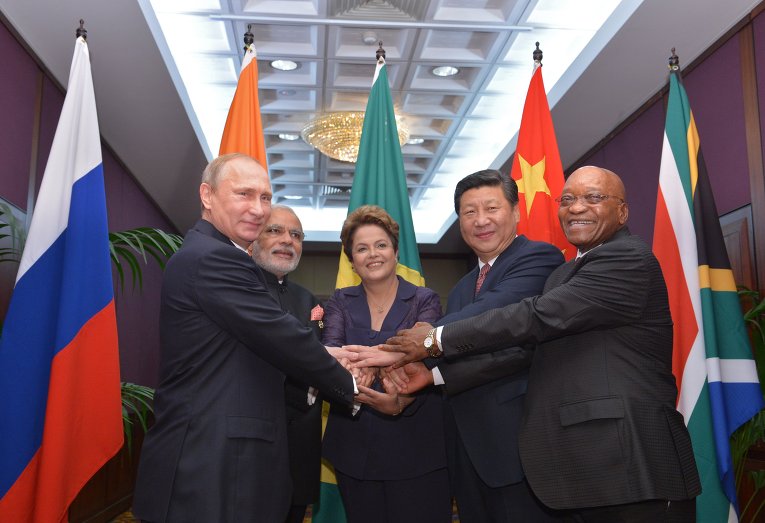MOSCOW, April 16 (RAPSI) – Experts have concurred that BRICS countries and member states of the Eurasian Economic Union (EEU) must adjust their intellectual property (IP) protection laws to a unified legal system for the productive use of new digital technologies, RAPSI reports from the Digital Transformation Conference held in Moscow.
On Monday, experts from Russia, Brazil and China discussed the future of IP use during the current digital revolution which is “comparable in its precipitance and fatefulness only with electricity appearance in the human life.”
According to the President of Russia’s Chamber of Commerce and Industry Sergey Katyrin, economic partners would not reach real growth in this economic sector without regulation and forming-up of uniform rules for using and protecting intellectual property. In his speech Katyrin pointed to the importance of harmonization of BRICS countries’ legislation because a rise in this economic realm is possible only in cooperation.
Chairman of the Presidential Council for Human Rights Mikhail Fedotov in turn said that “the Internet is transboundary, and digital economy implementation is impossible in one country, for that reason transboundary problems require transboundary regulation.” Moreover, Russia’s actions in cyberspace control do not still cater to the present-day needs, according to Fedotov.
However, some experts believe that an evolutionary approach must be prevalent during law change because a revolutionary approach may upset the existing system, which adequately protects IP.
Furthermore, the aspect of implementing an integrated digital system with the EEU countries is already being worked out extensively, according to the First Deputy Chief of the Russian Government Staff Maxim Akimov.



